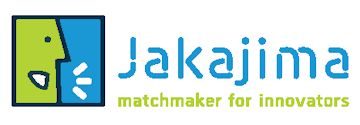How future robots can enable agriculture that is both more productive and more nature inclusive by making highly biodiverse cultivation systems feasible.
Conventional agriculture has brought us an abundance of cheap food. But now the downsides are starting to overshadow the upsides with its contributions to climate change, the increased vulnerability to climate change, decreasing nutritional value, biodiversity loss, soil degradation, decreasing water and air quality. Governments enforce and consumers expect more and more restricted use of inputs like fertilizers, pesticides, herbicides and fungicides.
 | 4 December 2024 |  |
|||||
Precision farming 1.0 (variable rate application) is already making significant contributions with tractors and large agricultural machinery to reduce (up till 90%) the negative impacts of fertilizers, pesticides, herbicides and fungicides.
Precision farming 2.0 (non-chemical weeding) is focusing on eliminating chemical inputs with robots without having to rely on expensive and more and more scarce labour.
Precision farming 3.0 is focusing on changing the cultivation system, enabled by small robots: biodiverse cultivation systems making use of positive plant interactions, ranging from stripcropping to pixelcropping, agroforestry and food forests. These are cultivation systems that are very productive per hectare with no or low inputs. The downside is that they are (very) labour-intensive compared to monocropping, and that traditional agricultural machinery is not (well) suited for it and manual labour too expensive or not available. This is where new, small robots come in that can deal with very diverse cultivation systems. What is the current state of the technology and agricultural practices, and what is needed for the acceleration of both the development of these robots and the adoption of biodiverse cultivation systems?
A presentation by Marius Monen, program manager / senior researcher robotization for sustainable agriculture at Avans University of Applied Sciences.
About Marius Monen
He is program manager of the applied research program robotization for sustainable agriculture.
Part of the research group (Dutch: lectoraat) Robotization and Sensoring.
About Avans University of Applied Science
Avans University of Applied Sciences was formed in 2004 as the result of a merger between Hogeschool Brabant and Hogeschool Den Bosch. These educational institutions were already working together closely at the time, operating under one Executive Board.
Student and employee participation in decision-making
At Avans, both staff and students have a voice in decision-making through a number of representative bodies. They play a key role in decision-making processes at all levels within our organisation.
Centres of Applied Research
As a knowledge-based institution, we develop new knowledge for education and society as a whole. As part of this, lecturers, lecturing researchers and students conduct practice-based research for businesses, government agencies and civil society organisations. The results of this research are implemented into our curriculum. Knowledge valorisation is a key item on our agenda: we take care to ensure that our newly acquired knowledge is of public value.
For more information go to the website.
Marius Monen will speak at the 2023 edition of the Agrifood Innovation Event.

